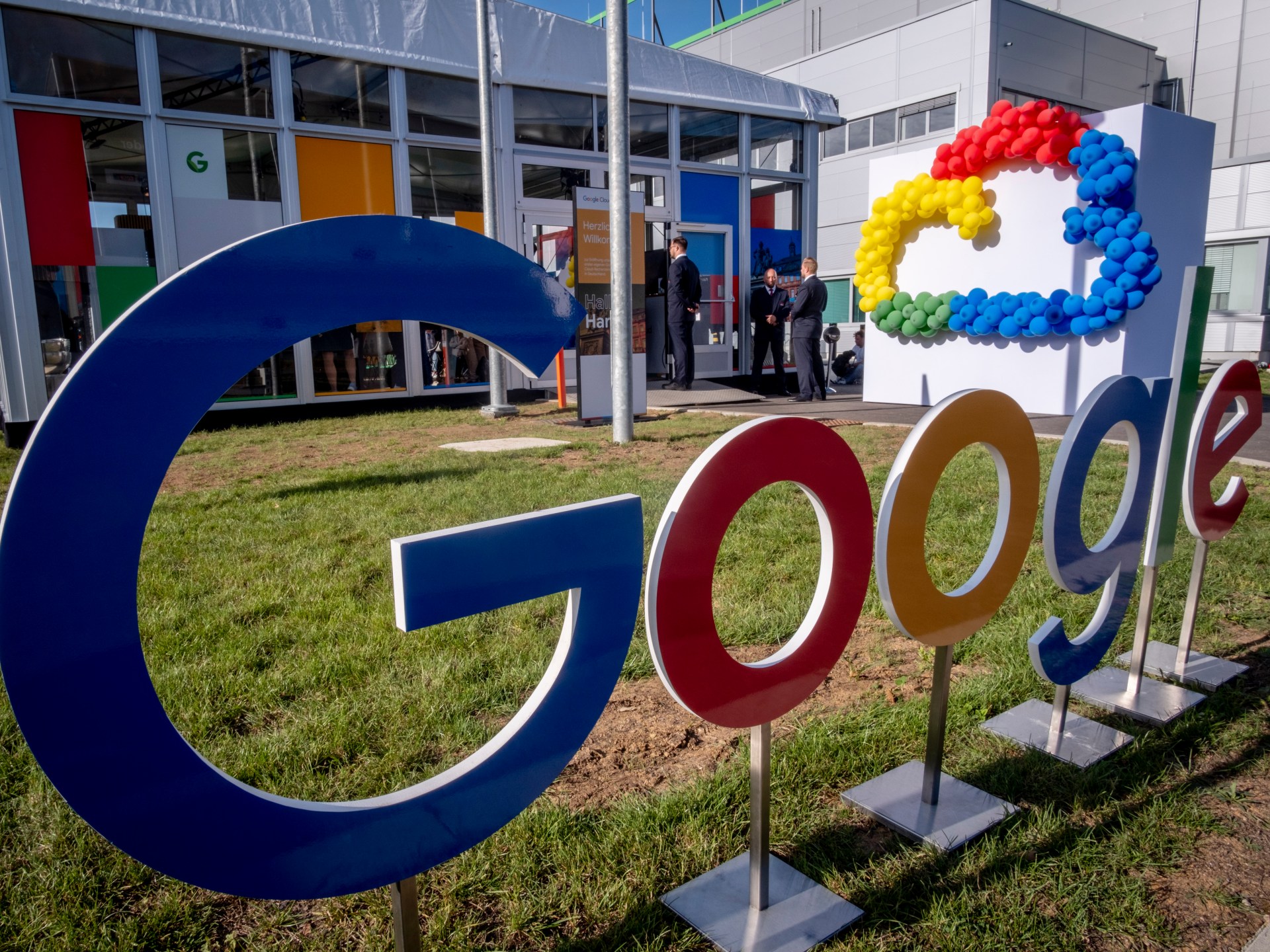EU to investigate Apple, Google, Meta under new digital law

[ad_1]
Antitrust regulators will probe the Big Tech companies for potential breaches of the Digital Markets Act.
European Union regulators have opened investigations into Apple, Alphabet’s Google and Meta, in the first cases under a sweeping digital law designed to stop Big Tech companies from cornering digital markets.
The European Commission, the 27-nation bloc’s executive, said on Monday that it was investigating the companies for “non-compliance” with the Digital Markets Act (DMA), which took effect on March 7.
The law requires six gatekeepers – which provide services such as search engines, social networks and chat apps used by other businesses – to comply with guidance to ensure a level playing field for their rivals and to give users more choices.
Violations could result in fines of as much as 10 percent of the companies’ global annual turnover.
The rules have the broad but vague goal of making digital markets “fairer” and “more contestable” by breaking up closed tech ecosystems that lock consumers into a single company’s products or services.
The commission said in a statement that it “suspects that the measures put in place by these gatekeepers fall short of effective compliance of their obligations under the DMA”.
It is looking into whether Google and Apple are fully complying with the DMA’s rules requiring tech companies to allow app developers to direct users to offers available outside their app stores. The commission said it is concerned the two companies are imposing “various restrictions and limitations” including charging fees that prevent apps from freely promoting offers.
Asked if the commission was rushing the process, EU industry chief Thierry Breton said the investigations should not be a surprise.
“The law is the law. We can’t just sit around and wait,” he told a press conference.
He said Meta, which introduced a no-ads subscription service in Europe last November that has triggered criticism from rivals and users, should offer free alternative options. Google and Apple have similarly introduced new fees for some services.
Earlier this month the EU issued Apple an antitrust fine of more than 1.8 billion euros ($1.95bn) following a complaint by music streaming service Spotify. It was the first-ever antitrust fine slapped on the company by the bloc.
The commission said the charge was triggered after Spotify complained in 2019 that Apple had prevented music-streaming services from informing users of payment options outside its App Store.
Apple criticised the EU decision, saying it would challenge it in court.
Google is facing scrutiny for not complying with DMA provisions that prevent tech giants from giving preference to their own services over those of rivals. The commission said it was concerned that Google’s measures would result in third-party services listed on its own search results page not being treated “in a fair and non-discriminatory manner”.
The commission is investigating whether Apple is doing enough to allow iPhone users to easily change web browsers. It is also looking into Meta’s option for users to pay a monthly fee for ad-free versions of Facebook or Instagram so they can avoid having their personal data used to target them with online ads.
“The Commission is concerned that the binary choice imposed by Meta’s ‘pay or consent’ model may not provide a real alternative in case users do not consent, thereby not achieving the objective of preventing the accumulation of personal data by gatekeepers,” it said.
The EU has sought to crack down on Big Tech companies, handing out a series of multibillion-dollar fines for Google and charging Meta with distorting the online classified advertising market.
Apple’s fine is about a quarter of the 8.25 billion euro ($8.95bn) the EU regulator fined Google in three cases in the last decade.
[ad_2]
Source link














